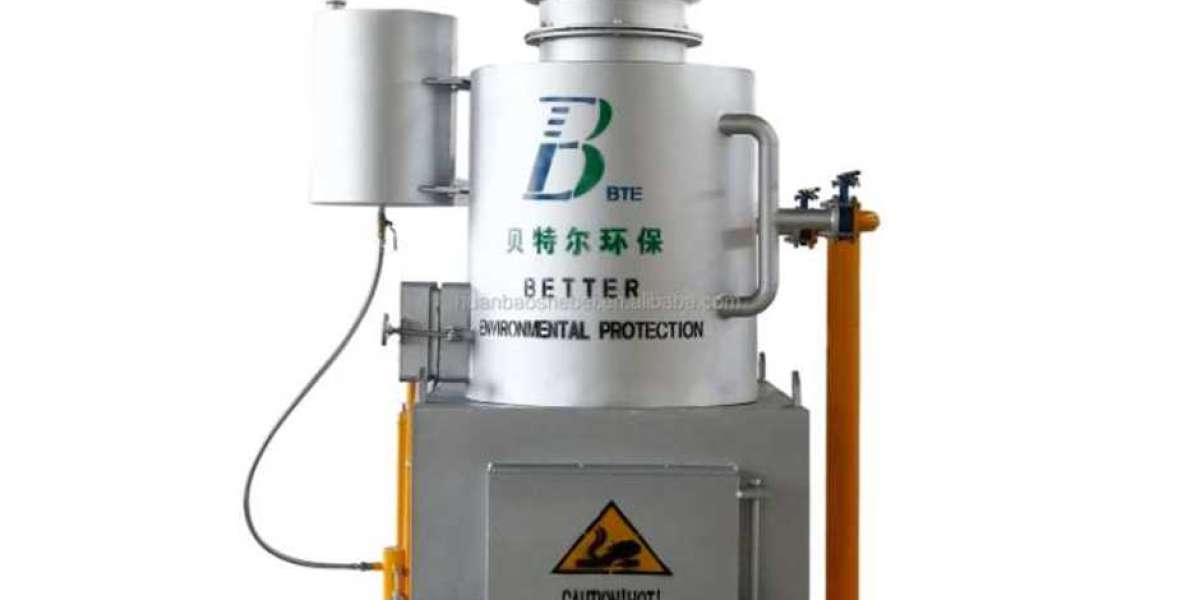Industrial waste management is a critical concern for industries across various sectors. Proper disposal of waste is not only essential for environmental sustainability but also for protecting human health. Industrial waste incineration has emerged as a popular method for managing and reducing waste. In this article, we will delve into the benefits and challenges associated with industrial waste incineration.

Benefits of Industrial Waste Incineration
1. Waste Volume Reduction
One of the primary benefits of industrial waste incineration is its ability to significantly reduce waste volume. Incinerators can break down both organic and inorganic waste materials, resulting in a significant reduction in the amount of waste that needs to be disposed of. This reduction in waste volume helps minimize the need for landfill space, which is often limited and costly to maintain.
2. Energy Generation
Industrial waste incineration can also serve as an energy generation method. Modern incinerators are designed to capture and utilize the heat generated during the incineration process. This heat is often converted into steam or hot gases, which can then be used to produce electricity or heat buildings. By turning waste into a valuable energy resource, industrial waste incineration contributes to sustainable and efficient energy production.
3. Destruction of Hazardous Waste
Certain types of industrial waste, such as hazardous materials, require specialized treatment to ensure safe disposal. Incineration provides an effective solution for the destruction of hazardous waste, as it can break down the chemical composition of these materials and neutralize their harmful properties. This helps protect the environment and prevents potential risks associated with the improper disposal of hazardous waste.
4. Reduction of Air Pollution
While it may seem counterintuitive, modern industrial waste incinerators are designed to minimize air pollution. Advanced pollution control technologies, such as scrubbers and filters, are employed to capture and remove harmful pollutants from the incinerator emissions. This helps ensure that the released gases and particles are within acceptable environmental standards, reducing the impact on air quality.
Challenges of Industrial Waste Incineration
1. Emission of Harmful Substances
Despite the advancements in pollution control technologies, industrial waste incineration can still emit certain harmful substances into the environment. These substances include heavy metals, dioxins, and other persistent organic pollutants. While efforts are made to minimize these emissions, it is important to continuously improve and monitor incinerator operations to mitigate any potential negative impacts on air quality and surrounding ecosystems.
2. Cost and Infrastructure Requirements
The establishment and maintenance of industrial waste incinerator can be costly. The initial investment in the infrastructure, including the incinerators themselves and pollution control systems, can be significant. Moreover, incineration requires a regulated waste collection and transport system to ensure the appropriate delivery of waste to the incineration facility. These costs and infrastructure requirements can pose challenges for industries seeking to implement incineration as a waste management solution.
3. Public Perception and Trust
Industrial waste incineration is often met with public concern and skepticism due to historical issues with older, less efficient incinerators. Public perception and trust play a crucial role in the acceptance of incineration as a viable waste management option. It is essential for industry stakeholders and regulatory bodies to address these concerns, communicate the benefits and safety measures associated with modern incineration technologies, and ensure transparency throughout the process.
Conclusion
Industrial waste incineration offers several benefits in terms of waste volume reduction, energy generation, destruction of hazardous waste, and reduction of air pollution. However, it also comes with challenges such as the emission of harmful substances, cost and infrastructure requirements, and public perception. By continually improving technology, implementing stringent regulations, and fostering transparency, the industry can further enhance the benefits and address the challenges associated with industrial waste incineration.
Remember, industrial waste incineration is just one of many waste management solutions available, and its suitability may vary based on specific circumstances and considerations. It is crucial for industries to carefully evaluate their waste management needs and explore a range of options to determine the most sustainable and effective approach.
About Us
BETTER environment with our professional technology and products such as dissolved air flotation machine, package sewage treatment plant, mechanical filters, horizontal decanter centrifuge, waste incinerator, etc.
Website - https://www.zkbetter-epe.com/








